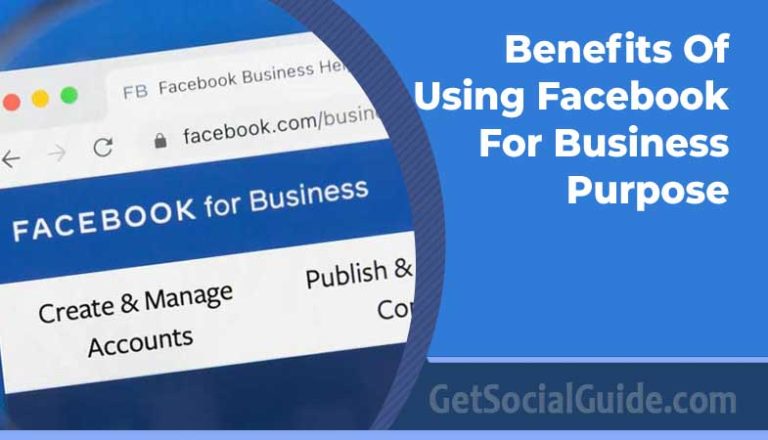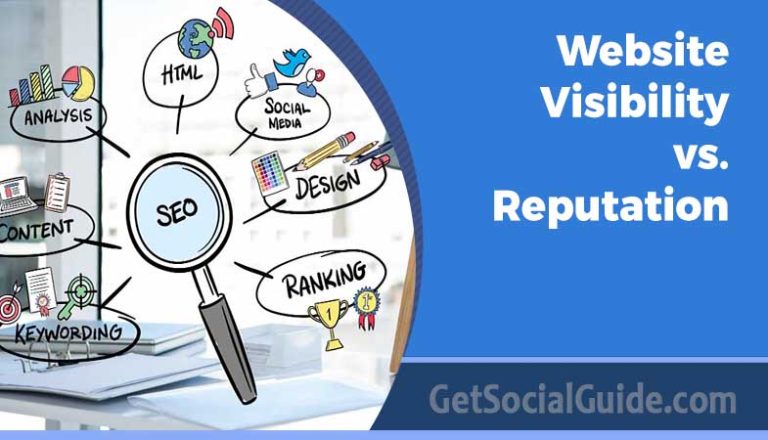Why Use WordPress for Blogging? Top 5 Reasons It’s an Awesome Platform
Do you want to start a blog? If yes then a question may come in your mind: which platform is best to start your blog. You can use a number of softwares for blogging.
Among these a very good software is WordPress. But for starting a blog why will you choose WordPress only? Now I am going to give you 5 reasons so as to choose WordPress for blogging.

It is free
The free stuff in WordPress attracts a lot of people towards it. There can be various reasons behind this. You will always take interest in saving your money. It is possible to start a blog without spending any money simply by setting up WordPress. However you have to do your blog’s self hosting if you take interest in having a domain name for yourself. Some money will be needed for doing this. If you want to pick a domain name of WP for yourself then you need to do the self-
hosting in WP. So, when using WP without paying any money you will have a domain name like “xyz.wordpress.com”. But after paying money you can have a domain name like “xyz.com”. By using it you can have a professional feeling. For the beginners it will be good not to go to complicated stuff. They need to learn
simple things first. Remember one thing that it is completely free to use WordPress’s actual program whether you host it yourself or use a hosting that is free.

Its Worlds Most Popular open source CMS
WordPress’s popularity and massive user base are major advantages that ensure its continuous development and improvement. Here are some key points highlighting why choosing WordPress is a wise decision:
1. Massive User Base: With over 30% of websites on the internet powered by WordPress, it’s clear that it is a widely adopted and trusted content management system. Such a large user base means there is a significant community of users and developers contributing to its growth and evolution.
2. Ongoing Development: WordPress is an open-source project, which means developers from around the world continuously contribute to its development. This ensures that the platform is regularly updated, with new features, improvements, and security patches being released frequently.
3. Security Updates: With WordPress being a prime target due to its popularity, security is a top priority. The development team is committed to identifying and fixing vulnerabilities promptly. Choosing WordPress means you can rely on these regular security updates to protect your website from potential threats.
4. Expansive Plugin Repository: The WordPress Plugin Directory offers a vast selection of over 55,000 free plugins that can extend your website’s functionality in various ways. Whether you need to add contact forms, improve SEO, integrate with social media, or enhance performance, you can find a plugin for almost any requirement.

5. Diverse Theme Options: WordPress offers a wide array of free and premium themes, allowing you to choose a design that aligns with your website’s goals and brand identity. Themes provide you with the flexibility to customize the look and feel of your site without extensive coding knowledge.
6. Active Developer Community: The WordPress community is not just vast but also active and supportive. Users can access forums, online groups, and community-driven resources to seek help, share knowledge, and collaborate with others.
7. Investment in Premium Products: If you’re willing to invest in premium plugins and themes, there is a rich market of high-quality products developed by various reputable companies and individual developers. These premium options often come with dedicated customer support and additional features, making them valuable investments for your website.
Overall, choosing WordPress as your content management system ensures you’re joining a robust and thriving ecosystem. With a plethora of themes, plugins, and ongoing development, you’ll have the tools and support needed to create, manage, and continuously improve a feature-rich, secure, and dynamic website.
It is user friendly
You can use the WordPress with great ease. First you need to install WP and then managing it will be very easy for you. On the screen’s left side, you will see the dashboard. For posting something or making any changes you will go to the dashboard.
It has free themes
You will be surprised to know that there is a lot of free stuff in the WP. By changing the theme, it is possible to have a completely different blog’s look. When you will install WP then you can leverage a lot of free themes available in it. The Appearance section of the Dashboard contains the theme changing options. You can easily install a theme of your choice. Just some clicks are needed for doing all this.
Easy to Maintain
Maintaining a WordPress website can be relatively easy, especially if it’s not too complex or large. Here are some essential maintenance tasks to ensure your WordPress site runs smoothly:
1. **Keep WordPress Updated**: Regularly check for updates and upgrade your WordPress installation to the latest version. This helps to ensure your site is equipped with the latest features, bug fixes, and security patches.
2. **Update Plugins and Themes**: Update your installed plugins and themes to their latest versions. Developers often release updates to enhance features, improve security, and maintain compatibility with the latest WordPress version.
3. **Regular Backups**: Create regular backups of your website’s data and files. In case of any unexpected issues or security breaches, backups will help you restore your site to a previous working state.
4. **Test Functionality and Links**: Periodically test your website’s functionality, including forms, buttons, and other interactive elements. Additionally, check for broken links to ensure a smooth user experience.
5. **Moderate Comments**: If your site allows user comments, regularly review and moderate them. Remove spam comments and respond to legitimate ones to engage with your audience.
6. **Enhance Security**: Employ security measures to safeguard your website from potential threats. Use strong passwords, enable two-factor authentication, and consider using security plugins to further protect your site.
7. **Monitor Site Performance**: Keep an eye on your website’s performance and loading speed. Slow loading times can lead to a poor user experience and lower search engine rankings.
8. **Optimize Database**: Optimize your WordPress database regularly to remove unnecessary data and improve website performance.
9. **Monitor SEO**: If SEO is important to you, keep an eye on your website’s search engine rankings and regularly update your content with relevant keywords.
10. **Check Mobile Responsiveness**: Ensure that your website is mobile-friendly and displays properly on various devices.
By following these guidelines and conducting routine maintenance, you can keep your WordPress website running smoothly and reduce the risk of potential issues. Additionally, staying proactive with maintenance can save you time and effort in the long run.
WordPress is Secure
WordPress is designed with security in mind, the internet can be a challenging and uncertain place, with hackers continuously evolving their tactics. However, you can take several simple yet powerful measures to secure your WordPress website effectively. Here are some essential tips:
1. Keep WordPress and Plugins Updated: Always ensure that you are running the latest version of WordPress and regularly update your installed plugins and themes. Developers frequently release updates to address security vulnerabilities and improve overall stability.
2. Use Strong Passwords: Use strong, unique passwords for your WordPress admin account, FTP, and database access. Avoid using common passwords or easily guessable information, and consider using a password manager to keep track of your credentials securely.
3. Enable Two-Factor Authentication (2FA): Implement two-factor authentication to add an extra layer of security to your login process. This way, even if your password is compromised, an additional verification step is required for access.
4. Limit Login Attempts: Use a security plugin to limit the number of login attempts allowed within a specific time frame. This can help prevent brute-force attacks on your login page.
5. Use Secure Hosting and SSL Certificate: Choose a reputable hosting provider that prioritizes security and offers SSL (Secure Sockets Layer) certificates. SSL encrypts data transmitted between your website and its visitors, enhancing security and trust.
6. Use Reliable Themes and Plugins: Only install themes and plugins from reputable sources, such as the WordPress.org repository or trusted third-party developers. Avoid using pirated or nulled themes/plugins, as they may contain malicious code.
7. Regular Backups: Perform regular backups of your website, including both the database and files. In the event of a security breach or data loss, having a recent backup ensures you can quickly restore your website to a safe state.
8. Secure File Permissions: Set appropriate file permissions for your WordPress files and directories. Restrict write access where possible to prevent unauthorized changes.
9. Disable Directory Listing: Prevent directory listing by configuring your web server to disallow it. This helps to protect sensitive files from being accessed by unauthorized users.
10. Use Security Plugins: Consider using reputable security plugins that offer additional layers of protection, such as malware scanning, firewall, and intrusion detection.
11. Monitor for Suspicious Activity: Keep an eye on your website’s logs and user activity. Unusual patterns or suspicious behavior might indicate a potential security threat.
By following these security practices, you can significantly reduce the risk of security breaches and keep your WordPress website safe and secure. Remember that proactive measures are essential, as security is an ongoing process, and staying vigilant can help you protect your site from potential threats.
Easy to Learn
Getting started with learning WordPress is indeed quite accessible, and there are plenty of resources available to help you along the way. Here’s a breakdown of why learning WordPress is easy:
- Ease of Access: WordPress is open-source software, and you can easily download and install it on your web hosting server. Most web hosting providers also offer one-click installations, making the setup process a breeze.
- User-Friendly Interface: WordPress’s backend, also known as the admin dashboard, is designed to be user-friendly and intuitive. Navigating through various settings and controls is relatively easy, even for beginners.
- Exploration and Familiarization: Once you have installed WordPress, you can freely explore the backend without the fear of breaking anything. This hands-on exploration allows you to become familiar with the interface, making it easier to manage your website.
- Abundance of Learning Materials: As you mentioned, there is an abundance of learning materials available for WordPress. Whether you prefer written tutorials, video courses, webinars, or interactive forums, you can find resources to suit your learning style.
- Blogs and Forums: Numerous blogs and forums dedicated to WordPress offer tips, tricks, and troubleshooting guides. You can find solutions to common issues and learn from the experiences of other WordPress users.
- Books and Online Courses: If you prefer a more structured learning experience, you can find books and online courses tailored to different levels of expertise. These resources often offer step-by-step guidance, allowing you to build your skills systematically.
- Community Support: The WordPress community is vast and active. You can seek help and advice from experienced users through forums and social media groups.
- Themes and Plugins: WordPress’s flexibility is enriched by the availability of thousands of themes and plugins. These allow you to customize and extend your website’s functionality without having to write code from scratch.
- Regular Updates and Documentation: The WordPress team regularly releases updates, and the documentation is thorough, providing information on new features and changes. This helps you stay up-to-date and informed about the latest improvements.
Whether you’re a complete beginner or have some experience with other website builders, WordPress provides a user-friendly environment and extensive learning resources to help you create, customize, and manage your website effectively. So, don’t hesitate to dive in and start exploring the world of WordPress!
Hugh support for themes and plugins
Themes and plugins are two of the most powerful aspects of WordPress that provide users with extensive control over their websites. Let’s delve into each of them:
Themes: A theme in WordPress is a collection of templates and styles that determine the visual appearance of your website. It defines how your site’s layout, colors, fonts, and other design elements are presented to visitors. Themes allow you to change the look and feel of your website easily without altering the content. There are thousands of themes available in the WordPress Theme Directory, catering to various styles and purposes, such as blogs, business websites, portfolios, e-commerce stores, and more.
You can install and switch themes at any time, allowing you to experiment with different designs until you find the one that best suits your needs. Additionally, some themes come with built-in customization options, enabling you to further modify elements like header images, background colors, and layouts.
Plugins: Plugins are extensions that add specific features and functionality to your WordPress site. They enhance the core capabilities of WordPress and allow you to create a dynamic and interactive website without needing to write custom code. There are thousands of plugins available, ranging from basic tools like contact forms, SEO optimization, and social media sharing buttons to more advanced functionalities like e-commerce platforms, membership systems, and event calendars.
WordPress plugins give you the ability to tailor your website according to your requirements, making it highly customizable and adaptable to various needs. Like themes, you can easily install, activate, deactivate, and delete plugins as needed, giving you full control over the features you want to use.
Free and Premium Options: One of the great advantages of using WordPress is the vast selection of both free and premium themes and plugins. The WordPress Theme Directory offers a wide range of free themes that you can use without any cost. These free themes often provide enough features for many websites. However, if you have specific design requirements or need more advanced functionality, you can explore premium themes that are available for purchase from third-party developers and marketplaces.
Similarly, while many plugins are available for free, there are also premium plugins that come with additional features, customer support, and regular updates for a fee.
In summary, themes and plugins are what make WordPress highly flexible and user-friendly. With the abundance of options available, you can easily customize your website, add exciting features, and tailor your online presence to meet your unique needs and preferences.
Multiple users can use the WordPress
By taking the help of a number of your close friends you can create a blog. In order to create the blog, you all can work together. Allot a particular role to each of your friends. Then under your terms and conditions your friends will access the blog. For instance, one of them can play the role of “Administrator” as per your direction. If your other friend can write perfectly then allot him the role of “Author”. In uploading the new posts, he will help you. But functioning of blog’s important parts or changing these will not be under his control.
Pages and Widgets
A very good feature of WP are the pages. If apart from your blog you want to create something then pages will help you in doing this. For instance, if you want to describe your blog as well as about yourself then creating an “About Me” page for this purpose will be a good idea. After reading it the visitor will start taking interest
in your blog. For giving the complete details of your address or your contact, creating a “Contact Me” page will be a good idea. This will help the followers and readers in reaching you easily.
In your sidebar getting additional content is possible if in your site you add tools known as WordPress Widgets. You can consider Widgets as WordPress’s standard part. Using these is very easy and you need not to pay any money for using these. It is possible to show these in the sidebar’s any area by dragging and dropping these. WP offers so much flexibility and a number of reasons exist in support of my statement. So, if you take interest in starting a blog in WordPress then you can use various features that WP offers. This is a very good platform for the purpose of blogging. If someone wants to develop custom WordPress websites then it will be good for him to contact WordPress development services India.






